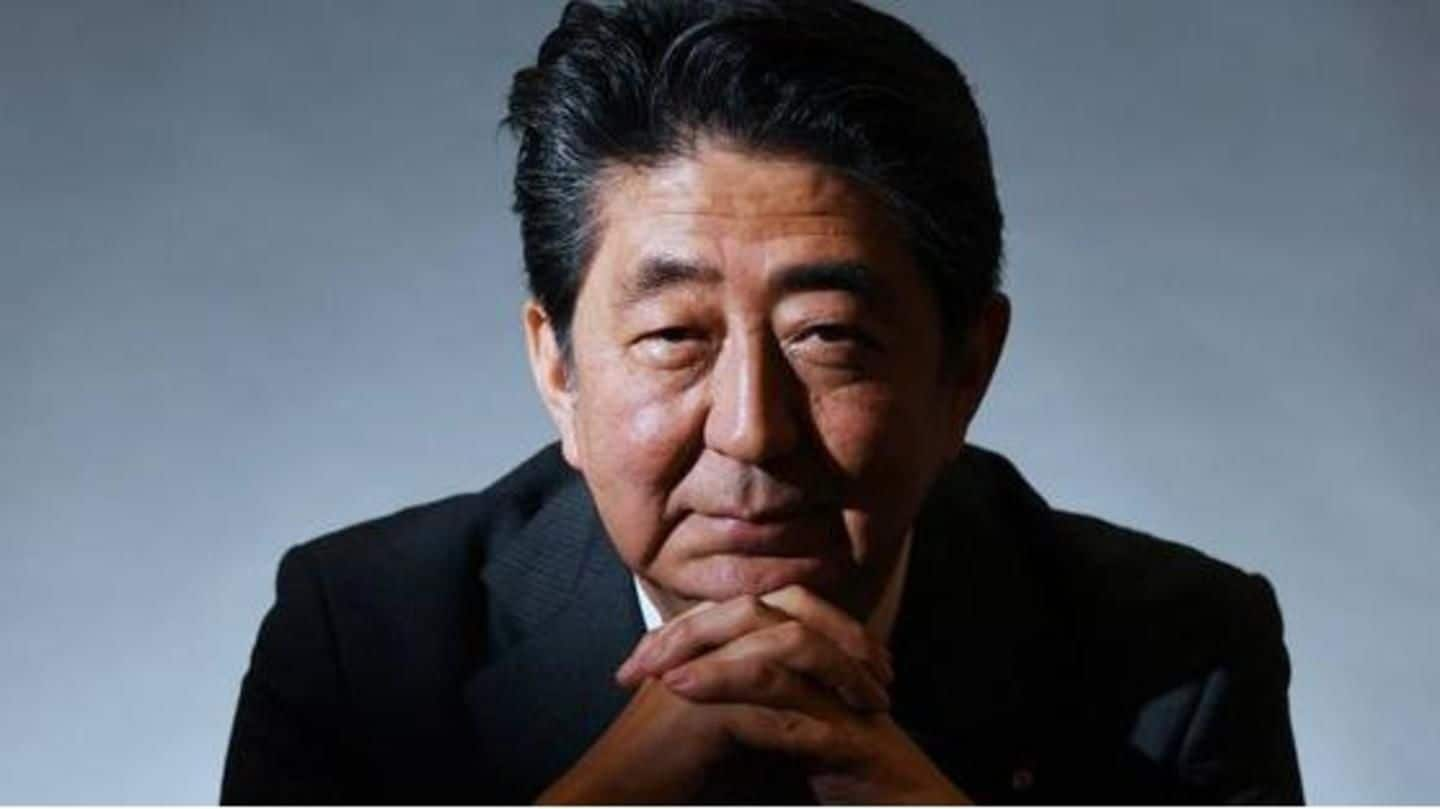
Abe aims to rewrite Japan Constitution, seeks 3rd term
What's the story
Japan's Prime Minister Shinzo Abe appears headed for a third three-year term as the ruling party leader, extending his hold on power and giving him time to pursue a long-cherished goal of revising the country's post-World War II constitution.
Abe has the support of a majority of party representatives ahead of the ruling Liberal Democratic Party's September 20 leadership vote, surveys show.
Here's more.
Quote
Will take the task that has never been achieved: Abe
"I will take on the task of revising the constitution, a post-war challenge that has never been achieved, in order to open a new era," said 63-year-old Abe yesterday in a televised debate with his only challenger, former Defense Minister Shigeru Ishiba.
Achievement
Abe is expected to become Japan's longest serving leader
Abe, PM since Dec'12, is poised to become Japan's longest-serving leader with a third-term.
He reportedly has the support of 70% of the 405 Parliament members from his party and is expected to win about 60% of the other 405 votes allocated to regional rank-and-file members.
The focus has shifted to who will get key party posts and Cabinet appointments, and his possible successor.
Attempts
Revision of Constitution couldn't be achieved by Abe's predecessors
A revision to the US-drafted 1947 Constitution is a decades-old pledge of the Liberal Democratic Party that none of Abe's predecessors couldn't achieve, including his grandfather, Nobusuke Kishi, who saw the Constitution as a humiliation imposed on Japan following its World War II defeat.
Abe earlier said he hoped his party could submit a draft constitutional revision to a Parliamentary session later this year.
Suggestions
Here is what Abe wants to change in the constitution
Abe is proposing to add a clause to Article 9, which bans the use of force in settling international disputes. The clause would explicitly permit the existence of Japan's military, the Self-Defense Forces.
His coalition government holds a two-thirds majority needed in both houses to approve a national referendum on a constitutional amendment, but it's unclear whether Abe could get enough votes for passage.
Public woes
Public, however, cares more about pay, education, child care cost
For the public, however, Japan's Constitution is a lesser concern than issues such as pay, education, and the high cost of childcare.
Abe's agenda will include Japan's aging and declining population and a royal succession in the spring.
He also has to deal with security concerns stemming from North Korea's nuclear and missile threats, as well as intensifying trade friction with the US.
Support
Despite scandals, opposition party attacks, Abe got huge public support
Abe has survived a series of scandals, including cronyism allegations against him and his wife, Akie.
Despite attacks from opposition parties and criticism in the media, his public support ratings have recovered to about 40%, considered high for a Japanese leader after five years and eight months in office.
Party members credit him with leading the party to major victories in national elections.
Quote
What a political analyst thinks of Abe's leadership
Abe has lasted so long because many lawmakers are primarily interested in getting his and other senior lawmakers' backing in elections, veteran political analyst Soichiro Tahara wrote in his blog. "Many Liberal Democratic lawmakers have become 'yes men' of the leadership," he wrote.